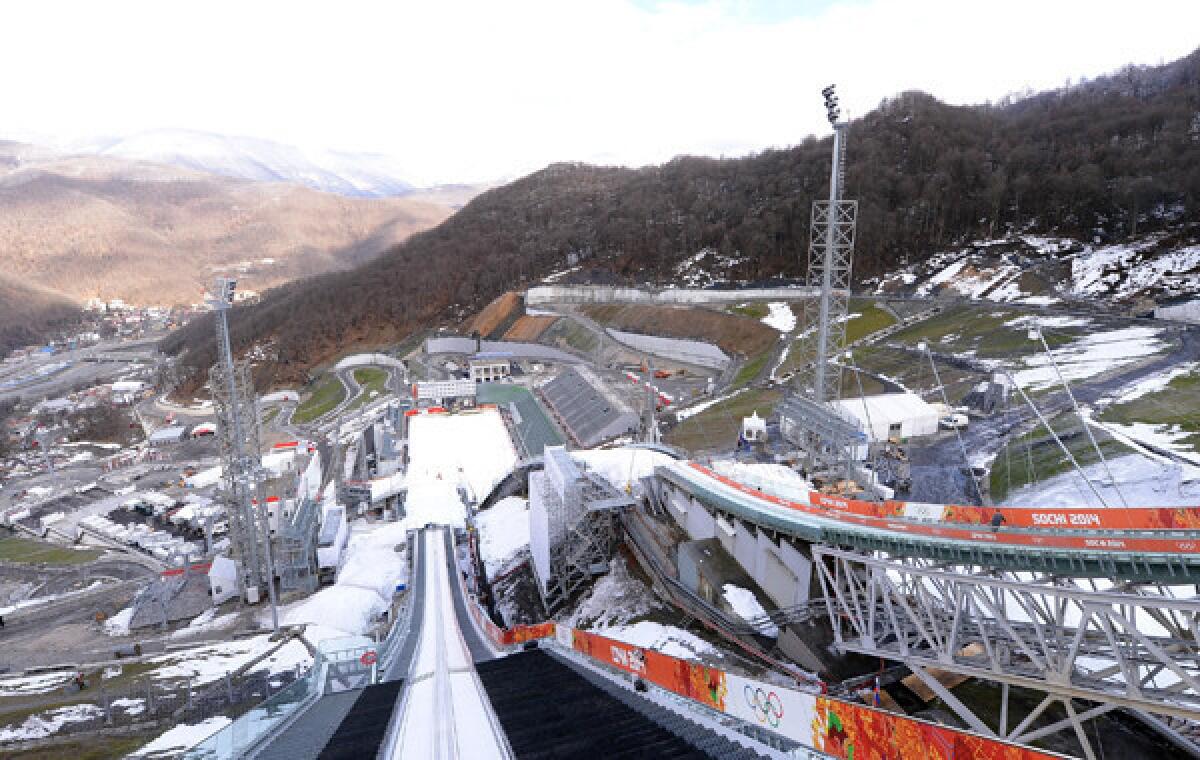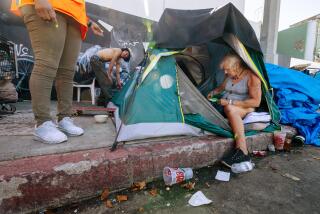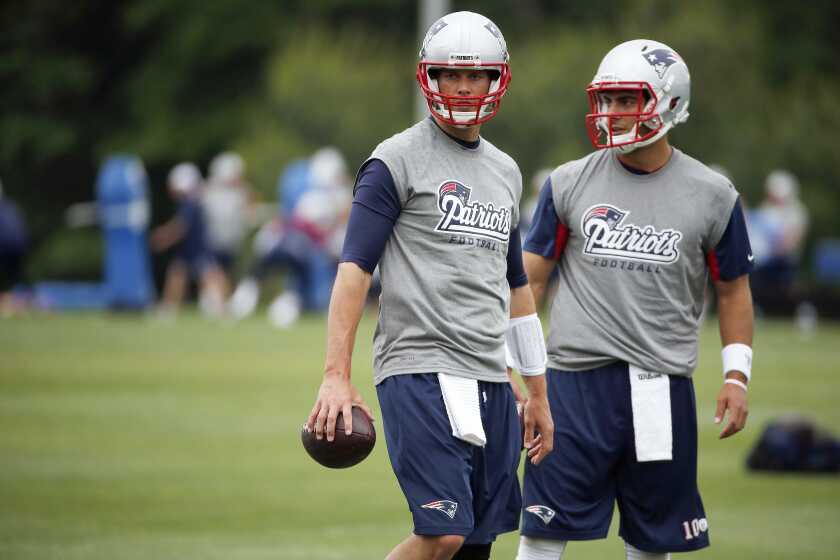Sochi Olympics dogged by wide belief funds were misspent, pocketed

SOCHI, Russia — Tired of hearing reports about alleged corruption and budget overruns, some Russian citizens have given the 2014 Sochi Olympics a nickname.
Kickbacktiada.
The Games, which begin Friday, rank as the most expensive in Olympic history with an estimated cost of more than $50 billion and counting.
A recent study by a Russian watchdog group alleges that organizers paid far more than the going rate for numerous venues built in and around the Black Sea resort. One former official fled the country and has been accused of embezzlement.
“Athletes are not the only people who compete in Sochi,” the Anti-Corruption Foundation report stated. “Officials and businessmen also took part in the Games and turned them into a source of income.”
Russian President Vladimir Putin has fought back against critics.
Sochi has been his pet project from the start. Putin wants to transform the city into a year-round tourist destination and use the Olympics to showcase his country.
“If anyone has concrete data on instances of corruption in implementing the Sochi Olympics project, we ask them to supply us with objective data,” he told reporters last week.
Still, there is widespread belief here that officials have misspent or pocketed a significant portion of the budget.
“They are lying in a big, big way,” said Boris Nemtsov, an opposition leader and former deputy premier in Boris Yeltsin’s government.
The International Olympic Committee chose the site of these Winter Games in 2007, selecting Sochi in a close vote over Pyeongchang, South Korea, and Salzburg, Austria.
Initial estimates placed the final price tag at about $12 billion.
The plans called for a cluster of arenas along the coast and another grouping of sports venues in the mountains, all built from scratch. But organizers were tasked with more than just preparing for skiers and skaters.
They launched an ambitious effort to construct hotels, roads and railways in this city of about 400,000 residents. The goal? To make Sochi more than just a summer vacation spot.
Putin doesn’t think such expenditures should be lumped in with the Olympic budget, which he puts at only about $6.4 billion. He said: “Those expenses are not directly related to the Olympic Games.”
But even the Russian president has had concerns about the project.
Early last year, he took an inspection trip through Sochi and was displeased with the progress, personally firing the vice president of the Russian Olympic Committee.
That man, Akhmed Bilalov, was in charge of building the RusSki Gorki ski jumping center, where spending had ballooned to $267 million, more than six times higher than originally estimated.
After his dismissal, Bilalov left the country and was accused of embezzlement.
The Anti-Corruption Foundation report, released last month, lists other examples of construction gone awry.
The foundation is led by Alexei Navalny, a popular blogger, opposition leader and one of Putin’s most outspoken critics. His research puts the overall cost of the Games at more than $45 billion.
Almost $25 billion of that amount came directly from the state budget, the report estimated. About $10 billion came from state-owned companies, $7.6 billion from state-owned banks and $1.6 billion from private investments.
Navalny asserts that construction contracts were awarded with no competitive bidding — an allegation echoed by the Anti-Corruption Coalition of Sochi. Spending has run amok, Navalny says, with at least nine venues.
The budget for Fisht Stadium, where the opening ceremony will be held Friday, could reach $700 million. That would be 14 times higher than originally estimated and 2.5 times more expensive than similar stadiums around the world.
The cost of the Adler Arena Skating Center for long-track speedskating has risen to $226.3 million, an estimated 2.4 times higher than the going rate.
Up in the mountains, the Sanki Sliding Center — built for bobsledders, lugers and skeleton racers — could cost as much as $76.5 million, making it 1.6 times more expensive than comparable facilities.
The report also states that Putin’s friend Arkady Rotenberg holds ownership interest in five companies that were awarded lucrative contracts on 20 Olympic-related projects.
Russian Prime Minister Dmitry Medvedev said the government is conducting investigations. No cases have reached court.
The cost of the Sochi Games will ultimately outlast the competition itself, critics say. They talk about what, in Olympic circles, is known as “legacy.”
Putin originally promised that venues could be taken apart and moved to cities where they would benefit the populace. Organizers of the 2012 London Olympics promised a similar regeneration and several arenas in that city have been dismantled for relocation.
But Russian Sports Minister Vitaly Mutko recently stated that none of the Sochi structures will be moved after the Games.
Nemtsov responded by saying: “All these venues will soon degrade and decay like in a dead sports city.”
In Sochi, the local coalition leader insists that Russians have good reason to complain.
“I have no word to describe my amazement at Putin’s remark that he is not aware of any serious facts of corruption as if he is the only person in the country who doesn’t possess this awareness,” Yuri Maryan said in a phone interview with The Times.
Pointing to the massive cost of construction in and around the city, Maryan said: “OK, if that is not corruption, what is?”
Twitter:@LATimesWharton
More to Read
Go beyond the scoreboard
Get the latest on L.A.'s teams in the daily Sports Report newsletter.
You may occasionally receive promotional content from the Los Angeles Times.











